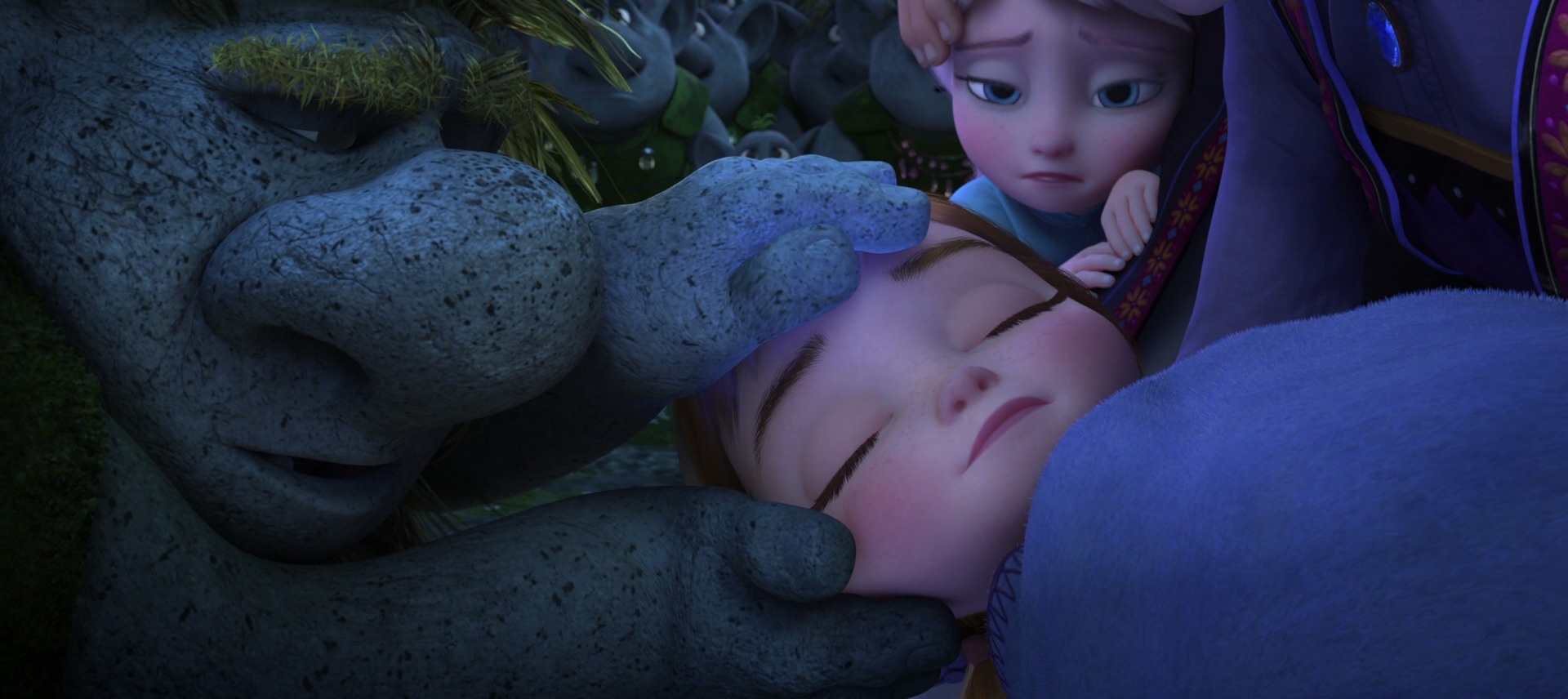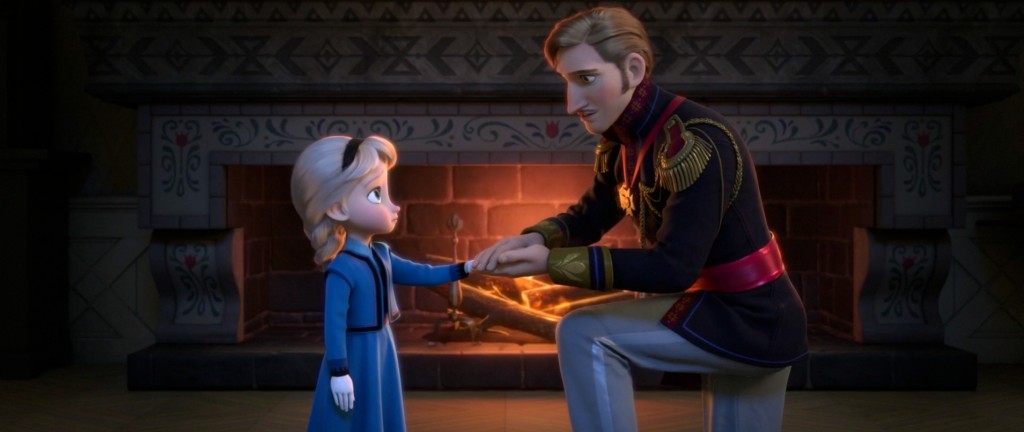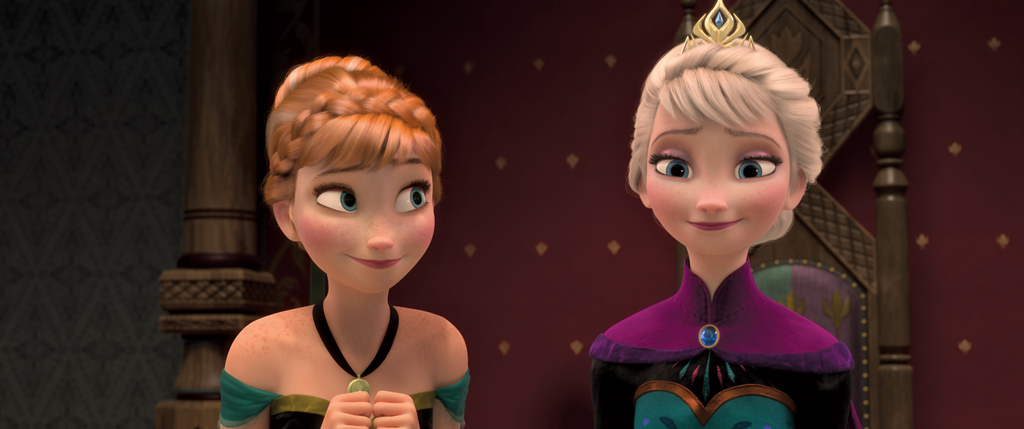Disney’s Frozen is now considered to be one the of the best Disney films of all time. What makes this animated film unlike any other Disney movie and why is it that one of its songs, Let it Go, is so loved by children, adults, firemen, active duty Marines, and people of all backgrounds? To answer these questions we are going to look at some psychological themes depicted in this powerful film.
Warning: major spoilers ahead, if you have not seen the movie yet and do not wish to know about what happens to its characters, please come back at another time.
In the beginning of the movie we meet two sisters, Elsa and Anna, both of whom are princesses. Elsa, the older sister, has special powers that allow her to freeze things. The girls are very young at this point and decide to play in the castle grounds. Anna accidentally gets hurt by Elsa’s magic and has to be taken to the trolls, who are the known healers for this kind of magic. Little Elsa watches as the trolls heal her little sister and watches them erase her memory of the event in order to protect her.

Seeing her own baby sister so badly hurt by something she did, was probably traumatizing for Elsa and she is instructed by her parents to “conceal” her magic from others and not to feel her emotions.

This is a very difficult message for a little girl to receive and in order to control her emotions, Elsa ends up locking herself in her room and does not interact with her sister. However, despite her best efforts to hide her powers, they only appear to be getting stronger.
Elsa begins to demonstrate patterns of behaviors that are not unlike what we would expect to see in someone with posttraumatic stress disorder (PTSD). Specifically these patterns include shutting out the very people that try to provide support, trying to hide/conceal the traumatic event or avoiding talking about it, being irritable, not enjoying things that one used to, and the belief that others will not understand. I am not necessarily saying that Elsa had PTSD, however, she does appear to be deeply affected by what happened and does not even come to her parents’ funeral.
Elsa first appears to reemerge from her hiding on her coronation day and “for the first time in forever” the two sisters are able to share a few laughs and bond over chocolate.

However, things soon go south as Anna gets engaged to a young prince she had just met at Elsa’s coronation ball. Elsa forbids the marriage and in her anger her magic comes out. Unfortunately, the people of Arendelle respond with fear as they often do when faced with things they do not understand, kind of like the reactions exhibited by the general population to the mutations in X-Men.

Once Elsa’s powers are discovered and she runs away from Arendelle, she experiences her moment of liberation and conveys what she’s been holding in for far too long. In her brilliant song, Let it Go, Elsa talks about how fed up she is with being a good girl and concealing her feelings. Now it is her chance to be herself instead of hiding and embrace her gift instead of being ashamed of it.
There are many reasons why this specific scene is so famous and why this song won so many awards. One of the main reasons it speaks to so many is because it portrays a situation that many of us can relate to. After all, how many of us have ever felt different, as if we don’t fit in?
Do you remember the first time you felt that you were different from other people? What was that like? And like Elsa, were you told to hide your differences and try to look “normal” and be “just like everyone else”? Were you ever told that you should be more like your brother/sister, or a friend, or made to feel ashamed of who you are?
The beauty of this scene is that it celebrates what makes us different. This scene is incredibly freeing, and what if that was true for you as well. What if the very thing you’ve been ashamed of, such as your sensitivity, your distractibility, your looks, your financial status was actually your secret superpower? What if this message of hope and strength was really your message? How would that look?
Learning to accept herself actually allowed Elsa to realize what her true values were: her family. And it was the sisters’ love and brave actions that ultimately broke the curse and melted not only the snow at Arendelle, but also Anna’s frozen heart.
“Love’s a force that’s powerful and strange
People make bad choices if they’re mad, or scared, or stressed
But throw a little love their way, and you’ll bring out their best,
True love brings out the best.”


“The cold never bothered me anyway” is translated in “die Kälte, sie ist nun ein Teil von mir” – “The cold is a part from me now” in the German lyrics.
That’s interesting bc splitting up one’s self in certain parts and FREEZING one’s feelings and putting them far far away to be subconcious, are reactions of a traumatic experiences, too.
Thanks so much, Farina,
Very compelling and interesting thought